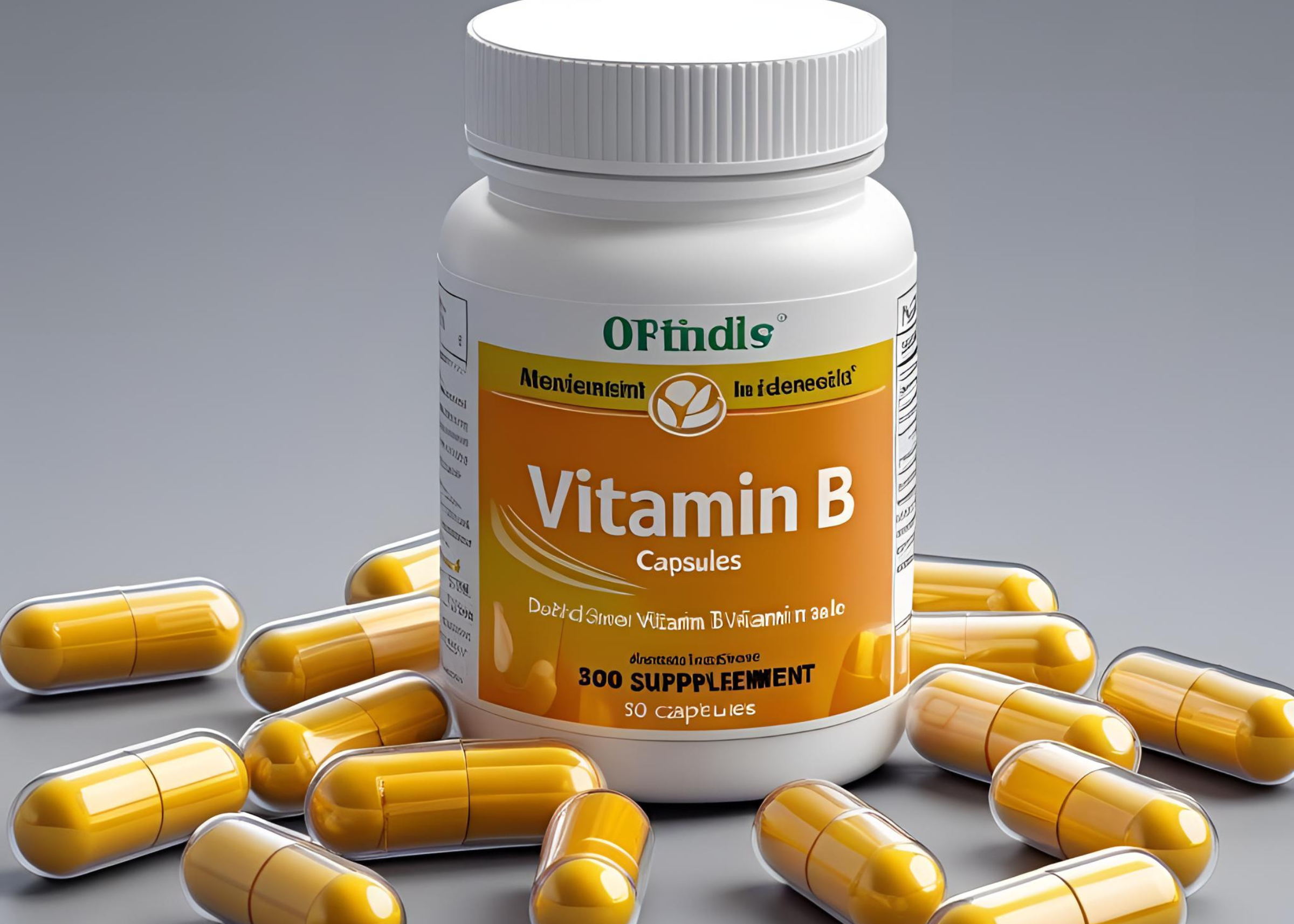Introduction-Vitamin B
Vitamins are essential organic compounds that support various physiological functions, and among them, Vitamin B plays a critical role in maintaining energy levels, brain function, and overall cellular health. Unlike some vitamins that exist as a single compound, Vitamin B refers to a complex of eight different water-soluble vitamins, each with its unique function but often working together in the body.
In this article, we will explore the different types of Vitamin B, their benefits, food sources, deficiency symptoms, and daily requirements to help you understand why this group of vitamins is vital for your well-being.

The B-Complex Vitamins: A Family of Nutrients
Vitamin B comprises eight distinct vitamins, collectively called the B-complex. These include:
- Vitamin B1 (Thiamine)
- B2 (Riboflavin)
- B3 (Niacin)
- B5 (Pantothenic Acid)
- B6 (Pyridoxine)
- B7 (Biotin)
- B9 (Folate or Folic Acid)
- Vitamin B12 (Cobalamin)
Each of these vitamins plays a crucial role in the body’s metabolic processes, particularly in converting food into energy and supporting the nervous system.
Benefits of B-Complex Vitamins
1. Energy Production
Most B vitamins, especially B1, B2, B3, and B5, are directly involved in the process of metabolizing carbohydrates, proteins, and fats into usable energy. This makes them essential for maintaining energy levels throughout the day.
2. Brain Health and Mood Regulation
Vitamins B6, B9, and B12 are essential for proper neurological function. They assist in the production of neurotransmitters such as serotonin and dopamine, which influence mood and mental clarity. Deficiencies in these vitamins can lead to depression, anxiety, and cognitive decline.
3. Red Blood Cell Formation
Vitamin B12 and Folate (B9) are crucial in the production of healthy red blood cells. A deficiency in either can lead to anemia, fatigue, and shortness of breath.
4. Healthy Skin, Hair, and Nails
Biotin (B7) is often known as the “beauty vitamin” due to its role in maintaining the health of hair, skin, and nails. Riboflavin and Niacin also contribute to skin integrity and elasticity.
5. Heart Health
Vitamins B6, B9, and B12 help regulate homocysteine levels in the blood, which, when elevated, are associated with a higher risk of cardiovascular diseases.
Food Sources of B Vitamins
Fortunately, B vitamins are found in a wide range of foods. Here’s a breakdown of where you can get each one:
- B1 (Thiamine): Whole grains, pork, legumes, and seeds
- B2 (Riboflavin): Eggs, dairy products, green leafy vegetables, and lean meats
- B3 (Niacin): Poultry, tuna, peanuts, and mushrooms
- B5 (Pantothenic Acid): Avocados, sweet potatoes, whole grains, and broccoli
- B6 (Pyridoxine): Bananas, chickpeas, salmon, and potatoes
- B7 (Biotin): Eggs (especially yolk), almonds, and cauliflower
- B9 (Folate): Leafy greens, citrus fruits, beans, and fortified cereals
- B12 (Cobalamin): Meat, fish, eggs, and dairy (only found in animal products)
For vegetarians and vegans, obtaining adequate B12 can be challenging since it’s not found in plant-based foods. In such cases, fortified foods or supplements are recommended.

Signs and Symptoms of Vitamin B Deficiency
Since B vitamins are water-soluble and not stored in the body (except B12), regular intake is important. Deficiency symptoms vary depending on which vitamin is lacking but commonly include:
- Fatigue and weakness
- Irritability or mood changes
- Poor concentration or memory
- Pale skin and shortness of breath (anemia)
- Cracks at the corners of the mouth
- Numbness or tingling in hands and feet
- Skin rashes and brittle hair/nails
Pregnant women, the elderly, people with digestive disorders, and those on restrictive diets are particularly at risk of deficiencies.
Daily Requirements and Supplementation
Here are the general recommended daily intakes for adults (varies slightly based on age, sex, and health condition):
- B1 (Thiamine): 1.1–1.2 mg
- B2 (Riboflavin): 1.1–1.3 mg
- B3 (Niacin): 14–16 mg
- B5 (Pantothenic Acid): 5 mg
- B6 (Pyridoxine): 1.3–1.7 mg
- B7 (Biotin): 30 mcg
- B9 (Folate): 400 mcg
- B12 (Cobalamin): 2.4 mcg
Supplements may be necessary for those who have difficulty meeting these requirements through diet alone. B-complex supplements that include all eight vitamins are widely available and often used to prevent or address general fatigue, stress, or nutritional gaps.
However, high doses of certain B vitamins (like B6 or Niacin) can lead to side effects, so always consult a healthcare provider before starting supplementation.
Special Considerations
- Pregnancy and Breastfeeding: Folate is especially crucial during pregnancy to prevent neural tube defects in the fetus. Doctors typically recommend 600 mcg of folic acid per day during pregnancy.
- Older Adults: As we age, the ability to absorb B12 declines. Many adults over 50 may benefit from a B12 supplement or B-complex vitamin.
- Vegetarians/Vegans: Since B12 is absent in plant foods, supplementation is necessary to avoid long-term deficiency.
Conclusion
Vitamin B is not a single nutrient but a powerful family of essential vitamins that work together to keep your body energized, your mind sharp, and your cells functioning optimally. Whether you’re eating a balanced diet or supplementing when needed, ensuring you meet your daily B vitamin requirements can have long-term benefits for your health.
From energy production to brain health, the B-complex vitamins are truly indispensable. Be mindful of your intake, watch for deficiency signs, and consult your doctor if you suspect a nutritional gap.


